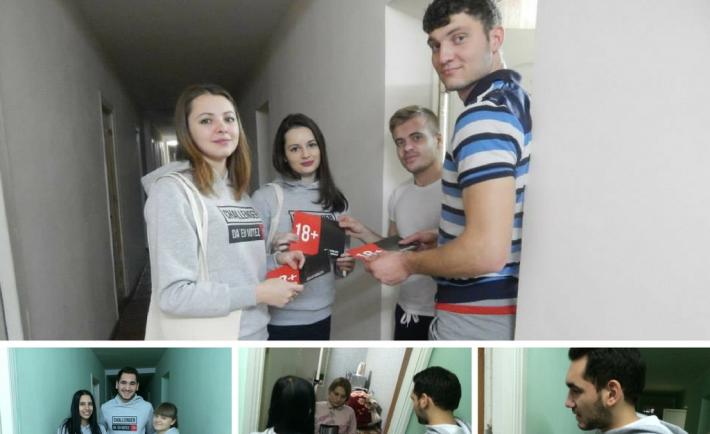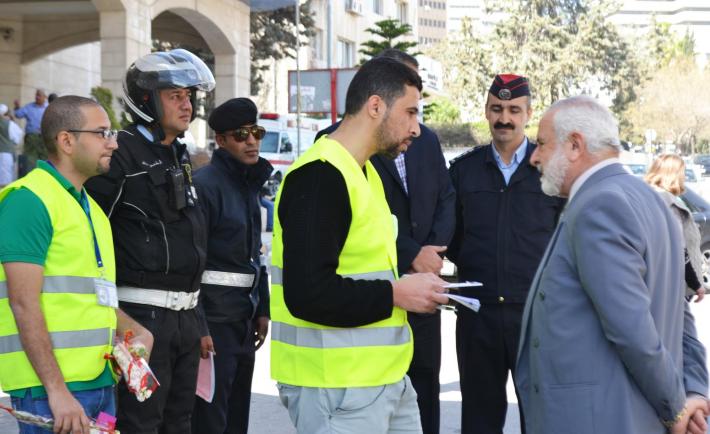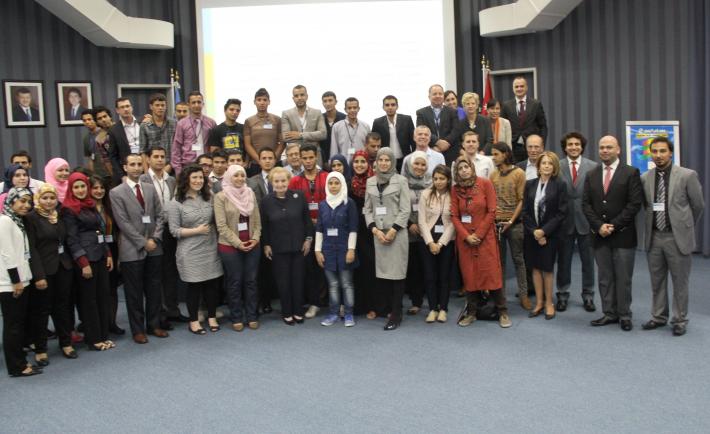In Jordan, NDI is using an innovative program to help young people use democratic methods and community action to become invested in their nation’s future. Through “Ana Usharek” (“I Participate”), university students throughout the country are learning about democratic values and political systems, human rights, non-violent dispute resolution, and civic responsibility.
How does increased youth participation in politics improve a society?
A New Side of Skills Development

Participants in Moldova’s Challenger program canvass and get out the vote for parliamentary elections.
What helps citizens succeed as political leaders and activists? Beyond providing technical skills and tools, NDI has noted that developing certain attitudes and behaviors can help citizens participate more meaningfully in public life. Young political activists have consistently mentioned the need for improved “soft skills” to work effectively and succeed as leaders. USAID and other donor agencies are also recognizing the importance of putting these skills at the center of human development.
Grounding Theory in Practice: Youth programs in Jordan and Kosovo

Usharek+ participants in Jordan launch their advocacy campaign with the goal of improving traffic safety.
NDI’s new theory of change unifies important elements of youth political participation programs and depicts how they can interplay to change practices of youth participation. This theory, which I blogged about last month, was not merely academic exercise from the “ivory tower.” It draws on discussions with young politically active women and men across Africa and Latin America, collaborative discussions with democracy and governance practitioners from around the world, and deep reviews of effective youth programs NDI is conducting in Jordan and Kosovo. The Jordan and Kosovo programs show how the theory of change can play out in practice.

